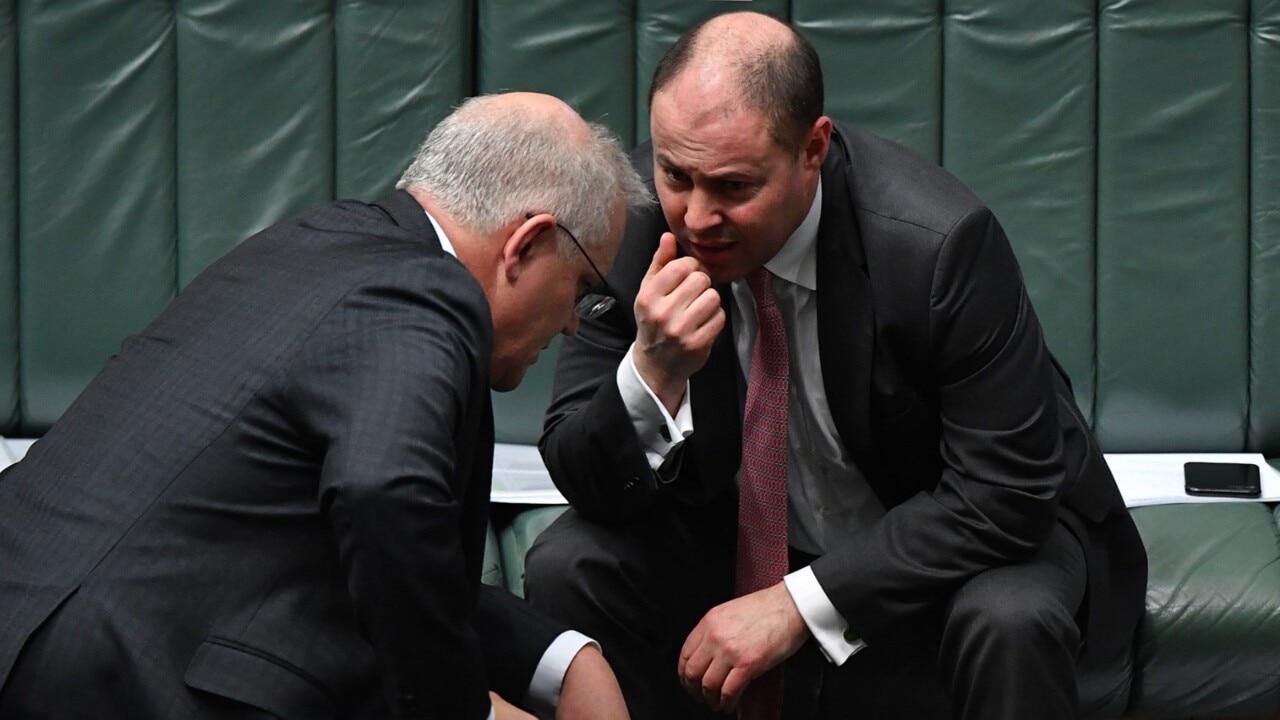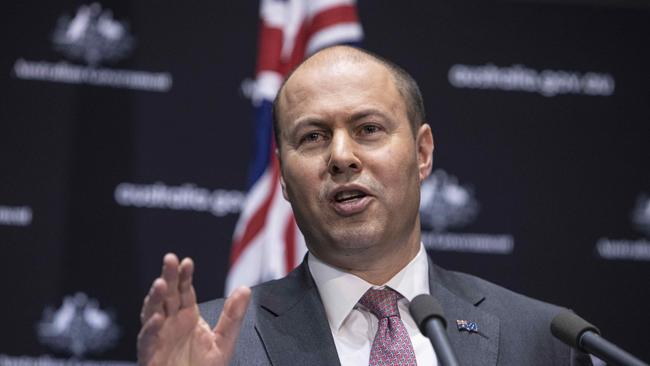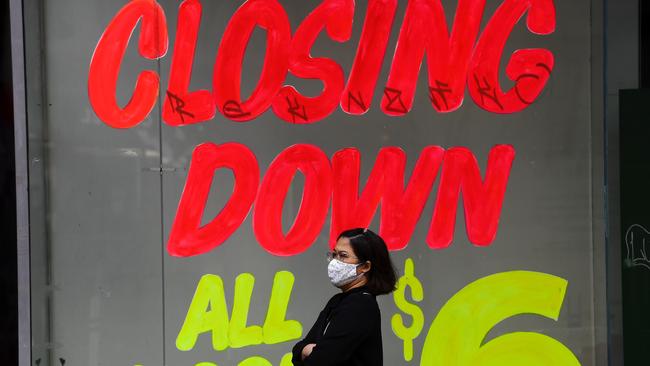Terry McCrann: The hidden risks in Frydenberg’s ‘reforms’
Treasurer Josh Frydenberg has unveiled two very big and significant moves aimed directly at helping the economy, small businesses and individuals get through the present crisis. But have not doubt there are some risks in these reforms, writes Terry McCrann.

Terry McCrann
Don't miss out on the headlines from Terry McCrann. Followed categories will be added to My News.
Treasurer Josh Frydenberg has unveiled two very big and significant moves for small businesses and for banks and borrowers.
They are aimed directly at helping the economy – especially those small businesses and individuals – get through the present crisis and then to emerge as quickly and in the best shape as possible on the other side.
But they are also intended to have more permanent and more fundamental impacts for when we get back – assuming we do – to a post-virus normality.
That’s where, if you like them, you would call them reforms. If you do not – and one of them has already unleashed a storm of protest – you would call them winding back the clock to the bad old days.
How they are perceived is critical. Both have to pass the Senate.
For one, that should be no problem. It is likely to win bipartisan support from Labor. The other is the exact opposite: it has no prospect of such support as it does seek to directly unwind Labor-initiated changes from a decade ago.
First, the ‘easy’ one. This is to make it easier for small businesses – with debts up to $1m – to deal with them if they get into financial difficulties: either to restructure those debts or to go into liquidation.

The key change would be to enable the owners to keep operating the business and to mostly control the process of sorting out the debts, rather than as now have it all handed over immediately to accountants – whether as receiver or liquidators or an administrator – and which usually immediately kills the business.
Of course, creditors would still have to vote as they do now on what’s proposed – like we’ve just seen with Virgin; and that process would still actually be managed by a professional rather than the owner.
The big difference though would be that by keeping the owner and (usually) operator running the business, as close to normal as possible, more value would be preserved for both creditors and employees and it would have a better chance of reviving rather than being liquidated.
A big – possibly the biggest – risk in the change would be if it allowed so-called ‘phoenix companies’ to proliferate.
This is where people open a business, run up debts, default on them, and then ‘rebirth’ the business in a new company.
Frydenberg is fully aware of the risk and says extra protections will be included – the main one, being a prohibition on someone using the process more than once in any seven-year period.
Hmm; we will have to see – although I doubt that it would make the risk of ‘phoenix’ behaviour any worse.
I would suggest one big change. It limits it to companies with debts up to $1m. These days that’s far too low; I’d suggest $5m or even $10m. It makes just as much and indeed possibly even more sense for somewhat larger small businesses.

The second is the controversial one – Frydenberg proposes to abolish the so-called ‘responsible lending’ rules for banks. Right now, I don’t see a Senate majority.
He needs three votes from among the Greens (zero chance); One Nation (2 votes) and the remnants of Nick Xenophon’s party (2 votes) and Jacqui Lambie.
Frydenberg presented it as part of the “economic recovery plan, we are reducing the cost and time it takes consumers and businesses to access credit”.
He claimed that what had started as a principles based framework to regulate consumer credit had evolved “into a regime that is overly prescriptive, complex and unnecessarily onerous on consumers”.
That captures exactly the conundrum: the ‘responsible lending rules’ were precisely designed to do exactly that: to make it exactly difficult for all consumers to borrow, so as to protect the minority of either the financially illiterate or financially promiscuous from themselves
Freeing the responsible majority at the cost of risking the illiterate/promiscuous is captured in the key change proposed.
Lenders would be able to rely on the information provided by borrowers, replacing the current practice of ‘lender beware’ with a ‘borrower responsibility’ principle.
This change has to be understood in the context of bolstering the parallel obligation of not only banks, but in future all financial institutions, to apply rigorous credit assessment and approval criteria.
In my judgment the so-called ‘responsible lending rules’ have not saved borrowers from themselves as intended, but rather just imposed penalties on banks after the event.
But they have clearly hurt potential borrowers: no, you can’t borrow the money to buy that house; you will have to continue renting while you have your savings chase rising housing prices.
Both proposals are particularly potent at this time of such great uncertainty.
They might help small businesses and consumers but probably, right now, only at the margin.
If you are prohibited from running your business, being able to more control its liquidation is small comfort.
If you’ve lost your job, you are probably not in the market for a $500k home loan.
Originally published as Terry McCrann: The hidden risks in Frydenberg’s ‘reforms’

